Durations: 40 hours
Lectures: 98
Students: Max 5
Level: All Levels
Language: English
Certificate: Yes
C Training Course
Welcome to our C Programming Training Course! Our course is designed to provide a comprehensive introduction to the C programming language, with a focus on building practical skills that can be applied in real-world scenarios.
Download PDF
What Will I Learn?
-
Introduction to Programming

-
Basic C Syntax: C syntax, including data types.

-
Operators, control structures, loops, and functions.

-
Arrays and Pointers: How to use arrays in C programs.

Course Schedule
-
4 - Week Program

-
5 Sessions a Week

-
1 Hour for Each Session

-
The Next Session Begins Every Monday

ENROLL NOW
Access this course now
Material Includes
-
Certificate of Completion

-
Access on Mobile & Laptop

-
Notes

Audience
-
Students and Recent Graduates

-
Software Developers and Programmers

-
IT Professionals

Course Content
Features Of C
Character Set, ASCII Table
Tokens
Keywords
Identifiers & Naming Rules
Constants
Data Types
How Does The Data Store In Computers Memory
Variables
Variable Declaration
Variable Assignment
Variable Initialization
Comments
Relational Operators
Logical Operators
Assignment Operators
Increment & Decrement Operators
Conditional Operator
Bitwise Operators
Type Casting
Size Of Operator
Operators Precedence & Associativity
Expressions
Evaluation Of Expressions
Non-Formatted Input & Output
Compiler, Linker & Loader
Program Execution Phases
Formatted Library Functions
Mathematical Library Functions
Structure Of a C Program
IDE & Basic Programs
Conditional Control Statements (Nested If-Else, If-Else-If Ladder)
Multiple Branching Control Structure (Switch-Case)
Loop Control Statements (While, Do-While, For)
Nested Loops
Break
Continue
Goto & Return
Strings
Pointers
Storage Classes
Structures
Defining a Function
Calling a Function
Return Statement
Function Prototype
Basic Function Designs
Programs Using Functions
Scope
Recursion
Iteration Vs Recursion
Nested Functions
Variable Length Number Of Arguments
Functions Returning Pointers
Pointers & One-Dimensional Arrays
Pointers & Two-Dimensional Arrays
Passing 1D Arrays To Functions
Passing 2D Arrays To Functions
Pointers & Strings
Passing Strings To Functions
Pointer To Function
Streams
Text File & Binary Files
State Of a File
Opening & Closing Files
File Input / Output Functions
Formatted Input / Output Functions
Formatted Input / Output Functions
Line Input / Output Functions
File Status Functions (Error Handling)
Positioning Functions
System File Operations
What is C ?
C is a high-level, general-purpose programming language that was originally developed in the early 1970s by Dennis Ritchie at Bell Labs. It was created to be a low-level language that would allow for efficient memory manipulation and system programming, while still being accessible to programmers. C has since become one of the most widely used programming languages in the world, and is commonly used for developing operating systems, device drivers, embedded systems, and other software that requires low-level access to hardware. It is also widely used in application development, especially for applications that require high performance and efficiency. C has influenced many other programming languages, and its syntax and structure can be found in languages such as C++, Java, and Python.
Read More
Uses of C In The Industry
C is used extensively in the industry for a variety of applications. Here are some of the most common uses of C:
Operating systems: C is the primary language used for developing operating systems. Many operating systems, including Windows, Linux, and macOS, are written in C or a combination of C and assembly language.
Embedded systems: C is commonly used in the development of embedded systems, which are computer systems that are built into other devices such as cars, appliances, and medical equipment. C is ideal for this purpose because it is a low-level language that can access hardware resources directly, and it is efficient in terms of memory usage and performance.
Game development: C is used extensively in the development of video games, both for desktop and mobile platforms. Many popular game engines, such as Unreal Engine and Unity, are written in C or C++.
Compilers and interpreters: C is used in the development of compilers and interpreters, which are programs that translate code written in one language into another language or execute code directly. For example, the GNU Compiler Collection (GCC) is written in C and is used to compile code written in a variety of programming languages.
Database systems: C is used in the development of database systems, which are software applications that manage large volumes of structured data. Many popular database systems, such as MySQL and PostgreSQL, are written in C.
Network programming: C is commonly used in network programming, which involves developing software applications that communicate with other computers over a network. The sockets library in C provides a low-level interface for network programming.
Scientific and engineering applications: C is used in scientific and engineering applications that require high performance and low-level access to hardware resources. For example, numerical simulations, data analysis, and image processing are often implemented in C.
Read More
Job Roles and Salaries For a C Developer
As a C developer, there are various job roles available in the industry, ranging from entry-level positions to senior-level roles. Some of the most common job roles for C developers include:
Software Developer: Software developers use C to design and develop software applications. They are responsible for analyzing user needs, designing software solutions, coding and testing software, and maintaining software systems.
Embedded Systems Developer: Embedded systems developers use C to develop firmware for devices such as microcontrollers, sensors, and other electronic devices.
System Programmer: System programmers use C to develop and maintain operating systems, device drivers, and other low-level system software.
Game Developer: Game developers use C to develop video games and game engines.
Database Developer: Database developers use C to develop and maintain database systems.
Network Programmer: Network programmers use C to develop software for networking, such as client/server applications, protocols, and network services.
Salaries for C developers vary based on their job roles, experience, and location. According to PayScale, the average salary for a C developer in the United States is around $76,000 per year, with entry-level positions starting at around $57,000 per year and senior-level positions paying upwards of $120,000 per year. Salaries for C developers may be higher in cities with a higher cost of living, such as San Francisco, New York City, and Seattle. Additionally, C developers with specialized skills, such as embedded systems development or game development, may command higher salaries than those with more general C development skills.
Read More




